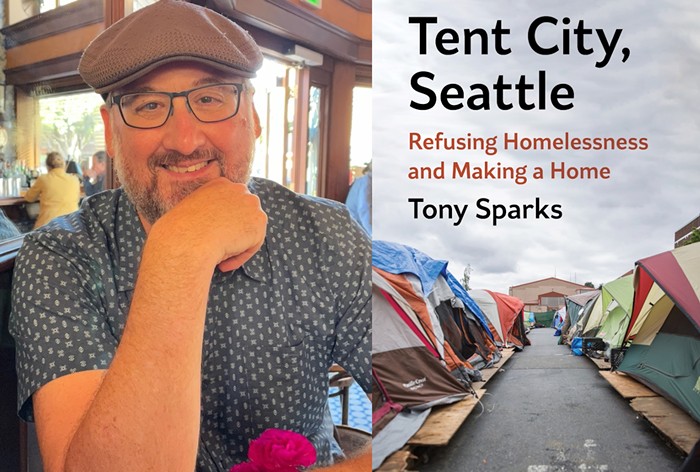
I.
On Friday, something like forty containers fell into the Pacific Ocean from a sea-tossed cargo ship transporting too much stuff from Busan, South Korea to Vancouver, Canada. (And, yes, it's that Busan—the one in the zombie movie Train to Busan.) The ship, Zim Kingston, also caught on fire because it was packed with toxic chemicals used for mining.
From continent to continent, from sea to sea, this is the whole bad business of one void going to another void. Container capitalism feeding extractive capitalism. The crew abandoned the ship near the Strait of Juan de Fuca. The smoke is still rising to the stormy sky. The mines are missing their poisons. Though none of this is making much of a future for humans, killing it is proving to be as difficult as killing a zombie:
The fire on the #ZimKingston has been stabilized. Depending on weather tomorrow, hazardous materials firefighters will board the ship to fight any remaining fires and ensure the fire is out. pic.twitter.com/IKIhY5Ayrm
— Canadian Coast Guard (@CoastGuardCAN) October 24, 2021
II.
Proposed council amendments to @SeattleOSE include a request that the department work with @seattleparks to develop a plan to phase out using gas-powered leaf blowers. pic.twitter.com/dWsJcdg8tS
— Ryan Packer (@typewriteralley) October 25, 2021
Finally, some progress is being made in this direction. There's now on the table a request for Seattle Parks to consider retiring its totally useless gas-powered leaf blowers. These machines just move leaves from here to there. That's it. The question is this: How did we get this far? Why are millions being made from these noisy machines whose use-value is nonexistent?
The answer is to be found in their compossibility. This is how even the most bizarre and irrational ideas can move, with little to no resistance, from the virtual to the actual. Meaning, because we live in an economy that's dominated by the consumption of fossil fuels, it's easier to imagine, realize, and market products and practices that consume fossil fuels in one way or another. These products/practices are compossible, where something like, say, a car-less Pike Place Market has, until very recently, proved to be incompossible.
III.
The latest episode of David Harvey's Anti-Capitalist Chronicles, "The Education of an Educator," is nothing like the other 67 episodes, which, in the main, examine current economic, political, and global developments with critical tools shaped by the mature Marx — the Marx of Grundrisse and the three volumes of Das Kapital.
In Episode 69, Harvey — a British-born geographer whose long life has seen the death of Empire, the rise and fall of the American 20th Century, and the recent emergence of Chinese capitalism — gets very personal. Harvey first explains how a crisis in his father's career as a shipbuilder in the post-war world influenced his writing habits as a scholar. Once done with that story, he reads one movement of his favorite poem, T.S. Eliot's Four Quartets.
Harvey and I agree on the greatness of this work, and we also share the same sense of unease about Eliot as a person. Sure, his poetry might be the best the English language produced in the first half of the previous century. But his politics and Christianity were very, very stuffy. However, Harvey and I split on which of the poem's four sections is the best. For Harvey, it's "Burnt Norton," the reading of which takes up most of "Episode 68." For me it's the "Dry Salvages," the movement with the "strong brown god," "the whale's backbone," "whine in the rigging," and "Arjuna on the field of battle."
Let's end this post with my little reading from "Dry Salvages."



















